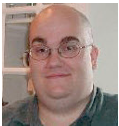 Our June meeting focused on technical topics, mainly artificial intelligence (AI). One member showed off a Synthesia policies and procedures demo reel for his own consulting company, created using artificial intelligence and generated images. Synthesia is a non-profit organization that creates videos for a fee that covers the cost of the video work.
Our June meeting focused on technical topics, mainly artificial intelligence (AI). One member showed off a Synthesia policies and procedures demo reel for his own consulting company, created using artificial intelligence and generated images. Synthesia is a non-profit organization that creates videos for a fee that covers the cost of the video work.
This transitioned into a general conversation about AI. What is the future of AI? How will it affect our technical communication careers? These are hot topics everywhere and our chapter meetings are no exception. With the rise of CHATGPT, many people are looking at how it is currently used and what AI applications might be possible in the future. You can find a few listed here, and sample discussions below:
https://www.brookings.edu/articles/how-artificial-intelligence-is-transforming-the-world/
https://techxplore.com/news/2023-06-artificial-intelligence-reshape-deep-science.html
Someone mentioned that Edmonton has become a hotspot for artificial intelligence resources and companies, which was news to most of us, and that Alberta in general has become a growing technology hub.
Writing with AI is growing in popularity and many news outlets are pushing stories of its good and bad aspects. That led us into ethics and AI, and how the intense pressure to get better grades leads some students to use AI to cheat.
As part of that discussion, we talked about our own profession and how it’s changing rapidly with the rise of AI applications. Will writing become an AI function? What about video production? Will research be simpler using AI?
We then moved on to talk about the most livable cities in the world, and how three in Canada made the top ten! Toronto (#9), Calgary (#7), and Vancouver (#5) made the list, which was exciting for our members from BC and Alberta.
A member asked whether computer programming skills are an essential tool for technical communicators to get a job. The consensus was that it is not essential but can be helpful if you want to write for the hardware or software industry. Although some technical communicators have some knowledge of “coding,” it is seen as more of an additional skill in your arsenal. Everyone encouraged the member to do some research to see if they enjoyed it, but not to worry too much if they didn’t. Technical writing is broad enough that you can usually choose to work in an area that uses the skills you prefer. Someone mentioned that as a designer they don’t need to understand programming languages at all, because they have other experts to rely on for that.
The Tech Comm Café provides networking opportunities, job leads, answers to work-related dilemmas, and a burst of professional energy to keep you motivated. We discuss technical writing tools and techniques, career planning, portfolios, and anything else related to working as a technical communicator.
We welcome anyone who’s interested in technical communication — contractor, in-house, student, long-time tech writer, STC member, non-member, career-changer, or recruiter. We hope to see you at the next meeting!
Next Meeting: ONLINE on Wednesday, July 19, 2023
- Subscribe to receive email announcements of future meetings.
- If you plan to attend, RSVP by 4 p.m. Wednesday, July 19, to receive login instructions.
Date: Wednesday, July 19
Time: 7:00-8:00 p.m. Pacific Time
Location: Online via Zoom
Agenda
- Introductions. Take 60 seconds to introduce yourself, your background, current activities. A good chance to try out that new elevator speech.
- Announcements and job leads. If you know of an interesting event or a job opening, or you’re looking for work, share it with the group.
- Brainstorming Q&A. Ask about a work-related problem and discuss potential solutions.
- Speed networking. Make new contacts and discuss your professional backgrounds and goals.

A technical writer with over 25 years experience in aerospace, health care, banking, food, & horticulture. He is a Senior Specialist, Org Knowledge for Argus Controls in Surrey, BC
